What Do You Do When You Feel Stressed Or Anxious?
I know something is off when instead of reading and winding down before bed, I have the desire to stay up on my phone and watch YouTube videos or veg out. My self-care is lacking and I just want to engage in a mindless task. This isn’t so terrible, but it is a hint to me that I’m not at my best. So when does a positive habit turn into a negative one? And what is the difference between these types of coping skills?

What Are Coping Skills?
Coping skills are methods that people use in order to help them deal with stress or negative occurrences. Those things can be negative emotions, difficult situations, or overwhelming thoughts. It can really be anything that causes psychological or physical overwhelm and in which a person feels the need to distract or soothe themselves in some way.
Coping skills are very helpful and useful. They are things that help people manage the world around them, and deal with difficult emotions such as anxiety and stress.
Free Masterclass
Healthy Coping Skills
Positive coping skills can help people process their emotions, increase awareness of the situation, and move them from a negative experience to a positive one.
One example of a positive coping skill is meditating. The reason meditation is helpful is because it provides the space for a person to stop and become aware of their thoughts, emotions, and/or physical sensations. Meditation is a healthy way to acknowledge how you are feeling, accept it, and move past it.
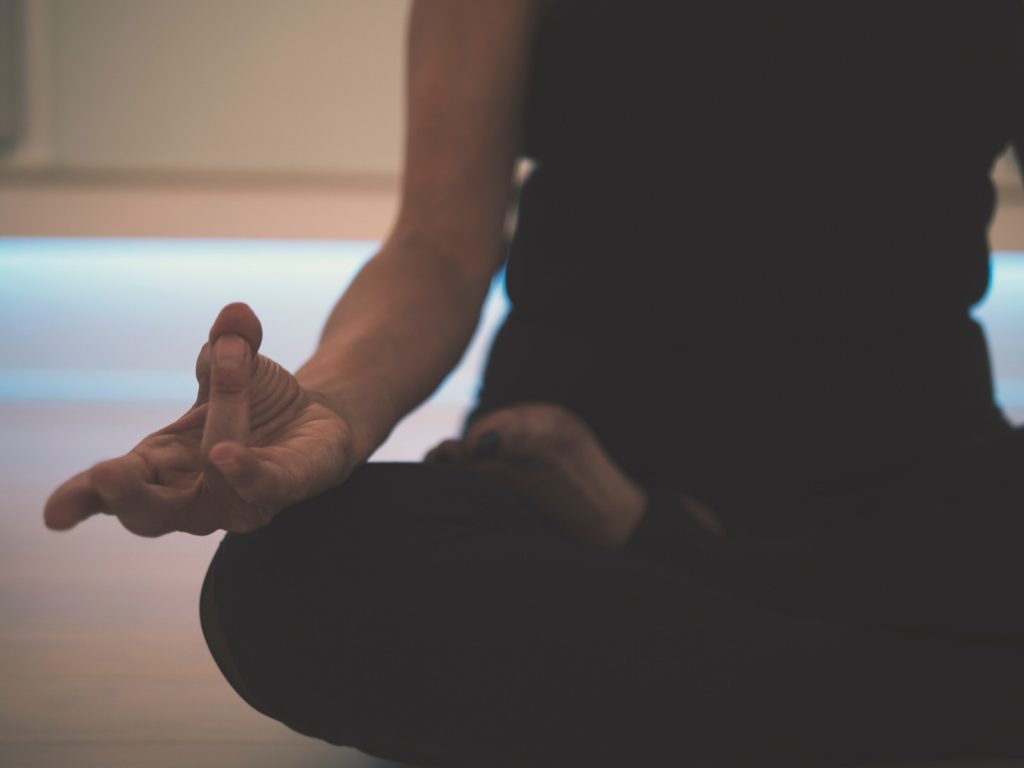
Some other examples of positive coping skills are:
- Journaling
- Talking to a person for support
- Creative expression (art, writing, music, etc.)
- Going for a walk or doing something active
- Taking a break
- Taking deep breaths
- Reading
- Watching something uplifting
- Self-care- taking a relaxing bath, getting a manicure, going to the hair salon, getting a massage, etc.
But can coping skills ever be unhelpful? And when does that happen?
Unhealthy Coping Skills
There are things that are considered to be negative coping mechanisms. These are activities that are unhealthy and can be harmful. Often times, these mechanisms cause you to feel better in the short-term, but do more harm in the long-term.
One example is emotional eating. Maybe you are upset and stressed out because you have an important meeting at work tomorrow and you are not sure what is going to happen or if you are prepared enough. You get home from work the night before the meeting and you are having difficulty focusing because you can’t stop thinking about this meeting.
Because you are so stressed, you find yourself feeling hungry. And not just hungry in general, but you are craving sugary, unhealthy food. You grab whatever is in the cabinet and before you know it… you have eaten a whole bag of chips and chocolate candies. It felt so satisfying in the moment, but now you are left feeling ashamed and regretful.
We have all been there; at least I am assuming so… The reason this happens is because you feel so stressed and distracted that your body wants to do anything to feel better and get rid of that feeling. Food causes you to feel better in the moment because your brain releases the feel good hormones known as endorphins. This feeling is only temporary though, and then you are left with feelings of regret for having lost control.

Some additional examples of negative coping mechanisms are:
- Smoking cigarettes
- Stopping eating/binge eating
- Shopping/spending a lot of money
- Avoiding the problem/situation
- Using drugs or alcohol
- Oversleeping
- Increased sexual activity as a means of avoidance
- Addiction to technology or television
Take a look at both lists, do you notice the differences?
What Is The Difference?
Positive coping skills help you feel better and provide an opportunity for reflection, acceptance, and kindness towards yourself.
Negative coping skills help you feel better temporarily, and ultimately are a distraction and a form of avoiding your problems.
We have all engaged in both negative and positive coping skills. We are all human and nobody is perfect, and the goal is not to be perfect.
The most helpful thing we can try to do is to have an awareness of the behaviors we engage in, and also to notice the urges we might have.
Often times it can be hard to pay attention to how you are feeling. Although it may seem like it should be obvious, sometimes we can have so many things going on in our lives, or we are so afraid to see things- that we have difficulty figuring out why and how we are feeling.
This is when it is important to use your behaviors as clues to your emotional states.
Pay Attention To Your Behaviors
So the next time you find yourself craving an alcoholic drink, wanting to shop until you drop, or being glued to checking your phone… it may be a good idea to check in with how you are feeling.
These are only guidelines and every person and situation is different, so use your best judgment when it comes to what is normal behavior for you. Pay attention to how you feel after using certain coping mechanisms, and that will be the best clue to whether it is positive or negative.
If you notice yourself using any negative coping mechanisms, congratulations! You have taken the first step to increased awareness and a more intentional way of living.
It can be very helpful to journal as a way of exploring why you have the tendency to use these negative coping mechanisms, and what is causing them.
Let me know in the comments below what healthy coping skills you like to use, and if you ever have difficulty sticking with them!
Free Masterclass
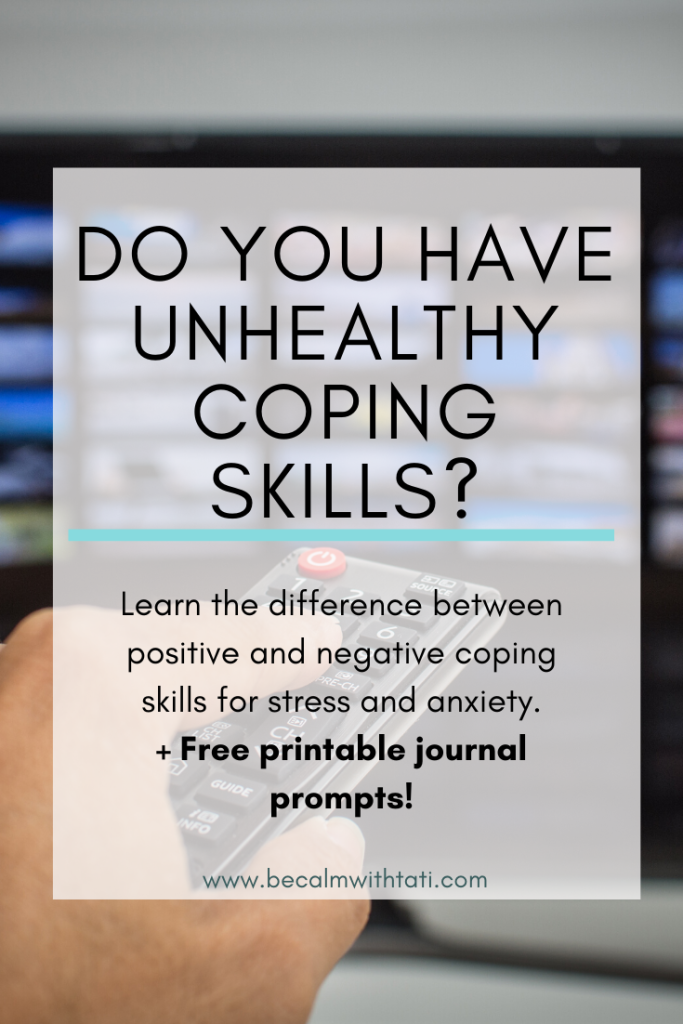
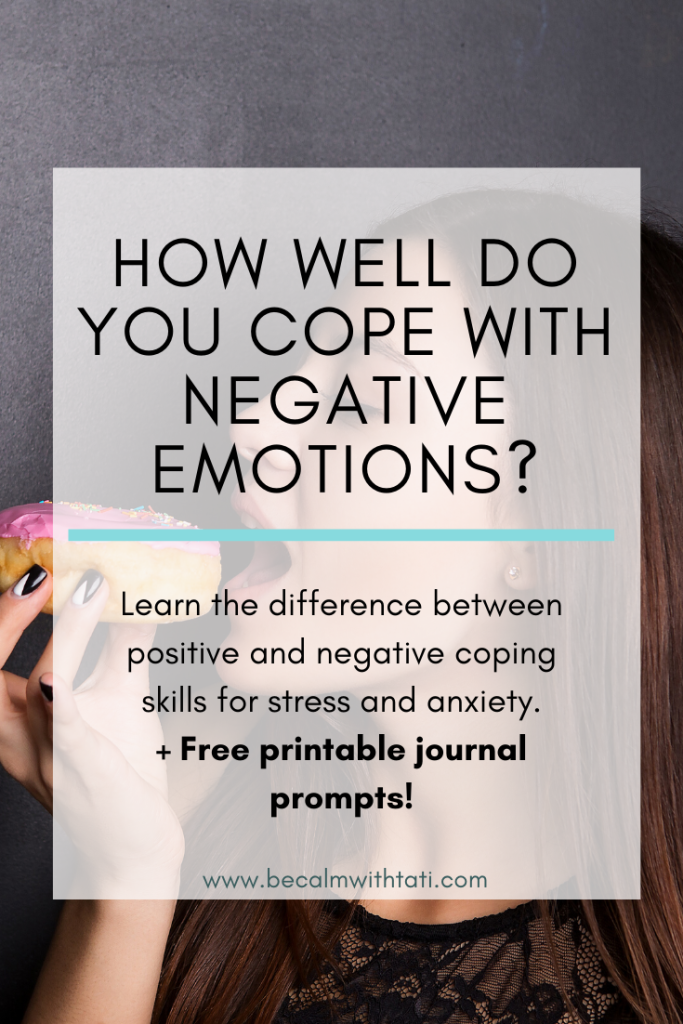





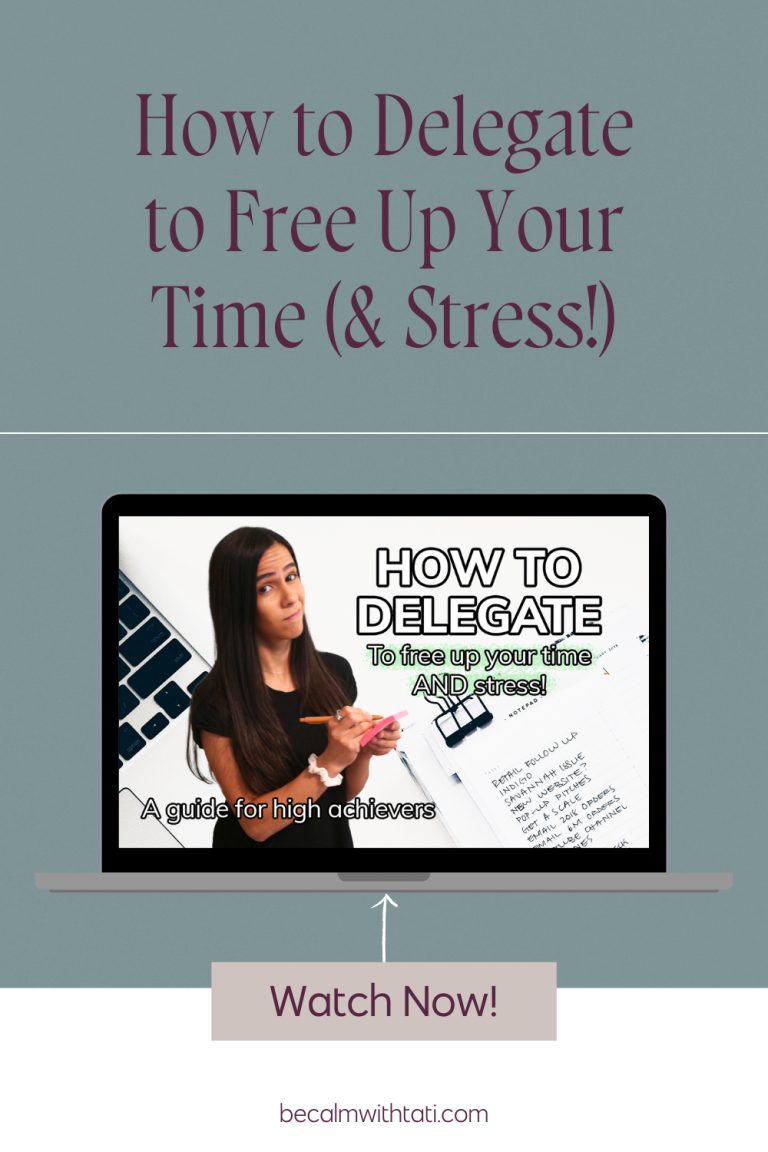
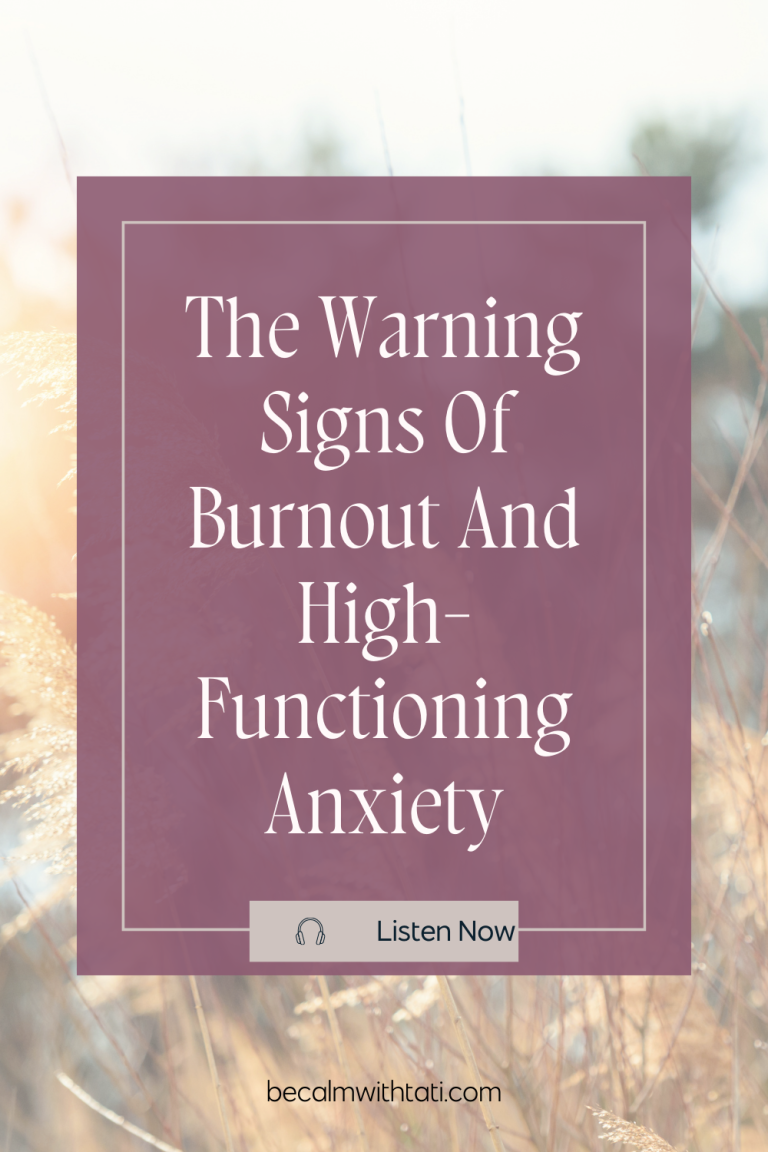
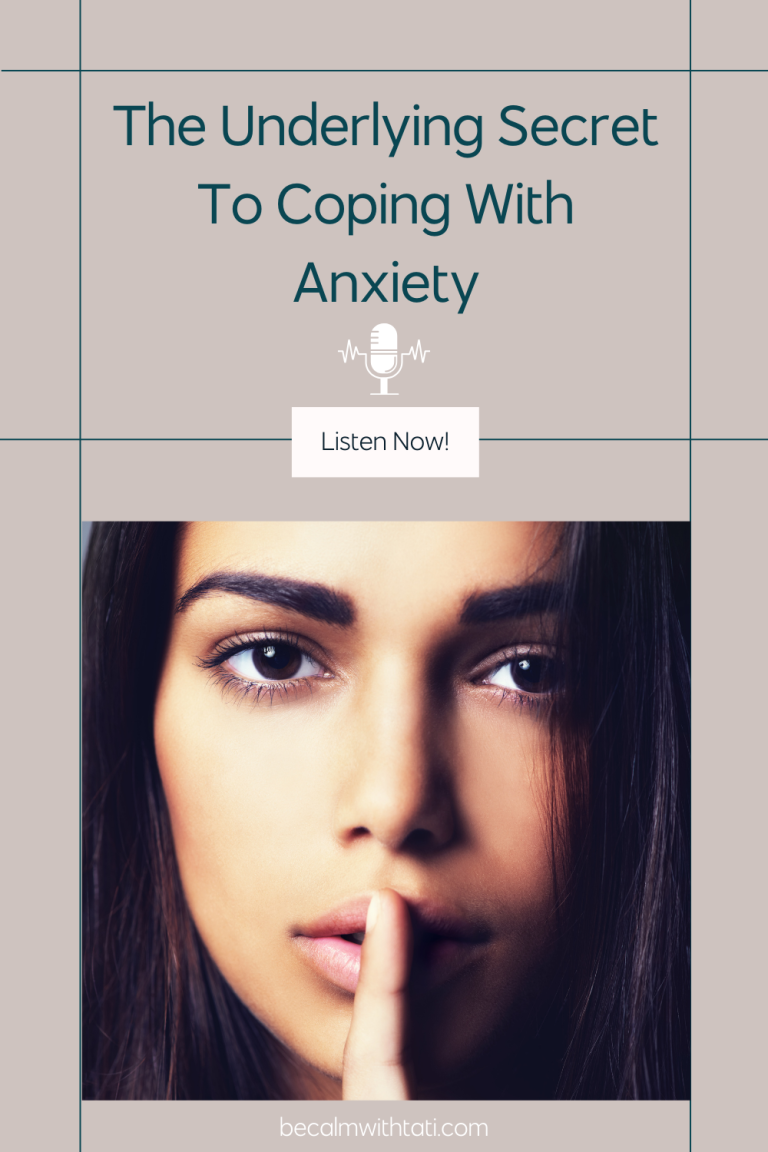







One Comment